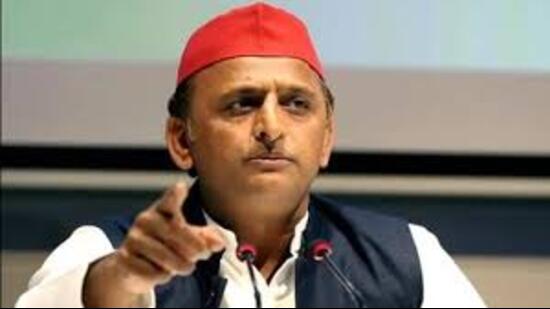As bulldozers demolish madrasas near the Nepal border, Muslim meat traders face mob attacks, and a centuries-old Islamic fair is abruptly cancelled, Samajwadi Party chief Akhilesh Yadav remains notably silent in public, reported the MoneyControl.While he has acknowledged these incidents in internal party meetings, his absence from the public discourse has triggered a deeper political debate: is this indifference, or a calculated shift in strategy?
On June 16 and 17, Yadav held meetings with his party’s minority cell and Pasmanda Muslim leaders. They raised serious concerns—from the violent assault on meat traders in Aligarh to the cancellation of the Gazi Miyan fair in Bahraich. In response, Akhilesh assured them that “remedial action” would come after the SP returned to power. However, the lack of any public condemnation—especially when compared to his vocal support for non-Muslim victims—has raised eyebrows among Muslim voters.
Political analyst Rajendra Kumar believes Akhilesh is carefully recalibrating his approach after the SP’s defeats in the 2017 and 2019 elections. Rather than be seen as a champion of Muslim issues—which the BJP has often weaponised against him—Akhilesh is promoting the broader PDA (Pichhda, Dalit, Alpsankhyak) framework, aiming to unite backward castes, Dalits, and minorities without overt Muslim symbolism.
“Each time Akhilesh stood up for a Muslim leader, the backlash intensified,” Kumar said, pointing to the case of SP MLA Irfan Solanki, who faced more legal trouble after Akhilesh’s prison visit.
His silence on the Gazi Miyan fair also reflects sensitive caste dynamics. The fair commemorates Syed Salar Masud, historically seen as an adversary of Suheldev, a hero of the Rajbhar community—an OBC group Akhilesh is keen to woo ahead of the 2027 assembly elections.
In today’s polarised climate, even a single tweet can become political ammunition. Akhilesh’s restraint may not signify apathy but rather a tactical retreat to avoid giving the BJP a political edge.
Veteran journalist Faiz Siddiqui points out: “The Muslim vote has limited alternatives in UP. Congress lacks grassroots influence, BSP has weakened, and AIMIM is seen as a divider. Akhilesh knows this and feels he can bide his time.”
Even in internal party conflicts, like the ongoing feud between Congress’s Imran Masood and SP’s Ashu Malik in Saharanpur, Akhilesh has chosen to stay neutral—urging unity against the BJP.
Akhilesh seems to be slowly moving beyond the traditional Muslim-Yadav vote bank to a broader coalition. However, this silence could cost him in terms of enthusiasm and mobilisation among Muslims—especially if they feel abandoned.
In UP politics, silence is seldom neutral. It speaks volumes. Akhilesh’s current approach may serve short-term stability and broader acceptance, but whether it resonates with voters in the 2027 elections remains uncertain.
In politics, what’s left unsaid often echoes the loudest.




